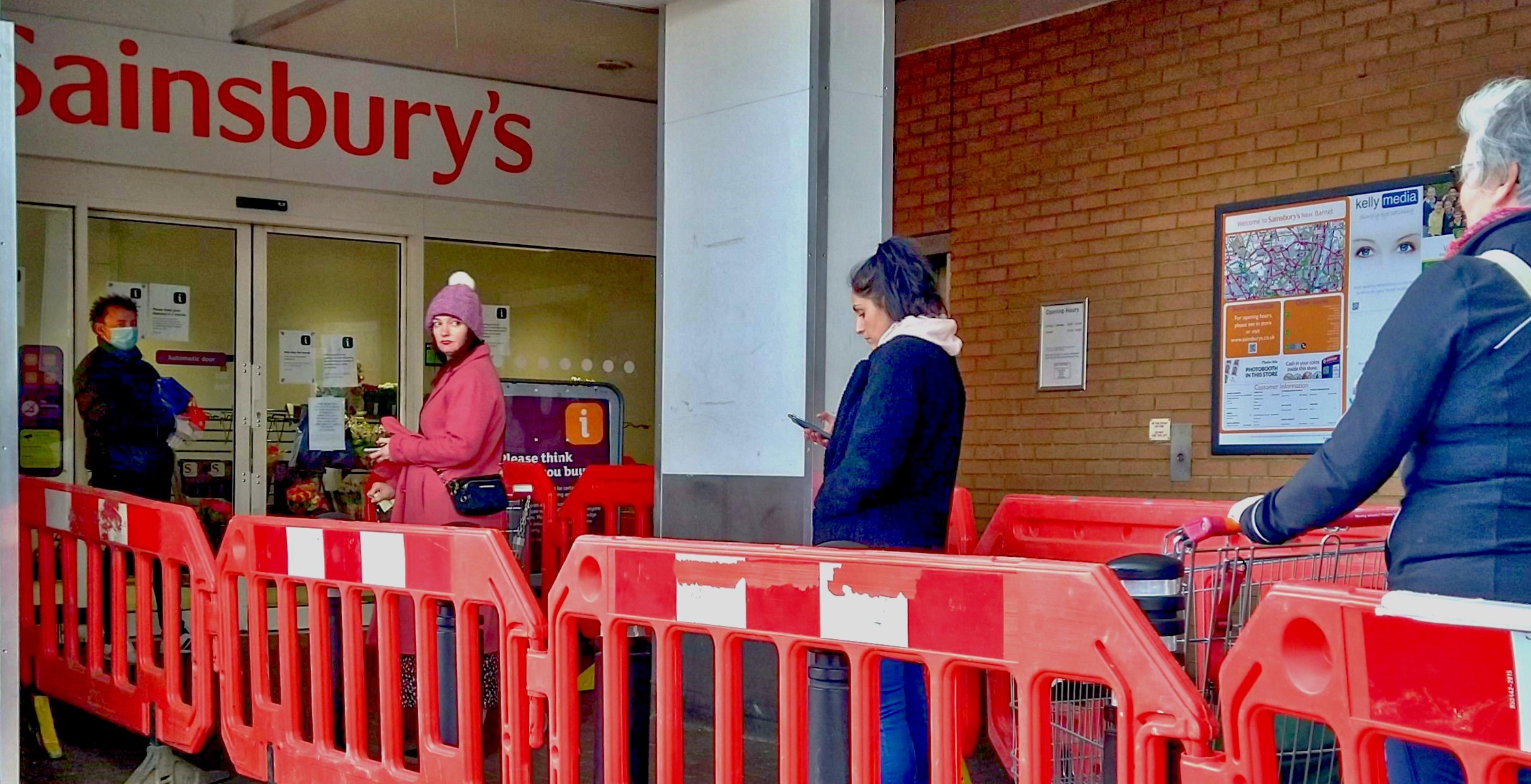As St. Lawrence students experience classes and culture abroad, they are simultaneously experiencing the pandemic. Last week, students on the London semester program were “pinged” by the United Kingdom’s National Health Service app, in part of the system that has come to be known as the “pingdemic.”
The NHS COVID-19 Test and Trace app is a way of contact tracing. Users scan QR codes when they enter stores, restaurants, museums and other spaces. Then if users test positive, they report results into the app. This alerts the others who have checked in at the same location as this positive user, in a notification called a “ping.”
The app also utilizes Bluetooth, and if a user was within 2 meters of a positive person for 15 or more minutes, they will be notified. Currently, if a person who gets “pinged” is fully vaccinated, the UK will not have them isolate. The app will recommend they get tested.
According to the NHS website, the app has been downloaded more than 21 million times, as of February 2021. No personal data is shared; all a user sees when they get “pinged” is the date they were exposed, but they do not see the time or location.
Frances Hubbard ’22 was one of the SLU students pinged after a train ride for a course study trip. “It’s scary to know that you’ve been in contact with someone who’s COVID-positive, so I think I was really taken aback and not really sure what to do in that moment,” she said of the moment she got the notification. “Then everyone else started getting pinged and it was clear it was an issue we were going to have to deal with.”
Students on the London program are tested twice a week with at-home tests, and PCR tested once every three weeks. Coincidentally, the pinging notifications occurred a few hours after students got their PCR tests.
Hubbard and the other students pinged attended Zoom classes from their accommodations while waiting for negative results. “I was frustrated with the system because it took so long, and the results were supposed to get back within 24 hours. We were following SLU guidance and it just would have been less stressful if the results came back in time,” she said.
There were no positive test results from the week of the pinging. “It was a relief, it made me have faith in the system and the vaccine,” Hubbard ‘22 said. “I’m happy no one had COVID!”
The UK has used their COVID-19 app throughout the pandemic and the response to this system has been mixed. The NHS claims the app is the fastest way to know of exposure because within 15 minutes of a person submitting a negative test, close contacts will be alerted.
A study by the Alan Turing Institute and Oxford University also found that COVID cases in the app-using population decrease by 2.3 percent with every 1 percent increase in app users.
BBC reported that more than 600,000 users between England and Wales were pinged between July 8 and July 15, 2021. This then led to a shortage of workers in numerous hospitality settings due to self-isolation requirements, as this was prior to vaccinated people being exempt from quarantining. Many restaurants and bars temporarily closed, according to BBC.
Hubbard ‘22 thinks that the app, and knowing when someone has been exposed, is overall beneficial. “It is a good system for early alerts and contact tracing,” she said. “It does have the possibility to change people’s behavior and prevent the spread [of COVID-19]. It is an important tool for managing COVID from here on out.”



